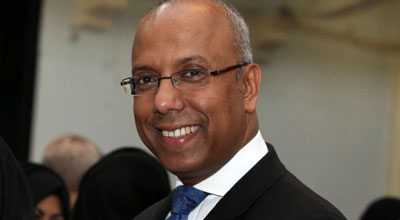Mursi sentenced to death in jail break case
 An Egyptian court sentenced former Islamist President Mohammad Mursi to death on Tuesday in a case related to a 2011 mass jail break.
An Egyptian court sentenced former Islamist President Mohammad Mursi to death on Tuesday in a case related to a 2011 mass jail break.
The court had sought the death penalty for Mursi in May and referred its recommendation to Grand Mufti Shawqi Allam, the country’s most senior religious authority, a step required by law for death sentences.
The general guide of the Muslim Brotherhood, Mohammad Badie, was also sentenced to death. The verdicts can be appealed.
Mursi was also sentenced to 25 years in prison in a case related to conspiring with foreign groups.
Badie and Islamist leaders Mohammad al-Katatny and Essam al-Erian were also sentenced to 25 years in jail in the same case. In total, 17 were given life sentences.
The court also sentenced Brotherhood leaders Khairat el-Shater, Mohammad el-Beltagy and Mohammad Abd el-Aaty to death in the same case.
Death sentences were also handed to 13 other defendants in absentia.
These were the final verdicts in two trials of Egypt’s ousted president who has already been handed the death penalty for a prison escape and attacks in 2011 as well as spying.
On May 16 Mursi and more than 100 others were sentenced to death after being convicted of plotting jailbreaks and attacks on police during the uprising more than four years ago that overthrew president Hosni Mubarak.
The death sentence was referred to the mufti, the government’s interpreter of Islamic law who plays an advisory role, and a final ruling had been scheduled.
Mursi, elected president in 2012 as the Islamist Muslim Brotherhood’s compromise candidate after its key leader Khairat al-Shater was disqualified, ruled for just a year before mass protests spurred the military to overthrow him in July 2013.
He was among dozens of Islamist leaders detained amid a crackdown in which hundreds of Mursi supporters were killed.
Mursi, 64, was in prison when the anti-Mubarak uprising erupted on January 25, 2011, having been rounded up with other Brotherhood leaders a few days previously.
On January 28 that year, protesters fuelled by police abuses torched police stations across Egypt, allowing thousands of prisoners to escape when the force all but collapsed.
Mursi and 34 others were also tried in a separate case of espionage.
Sixteen have already been sentenced to death for colluding with foreign powers, the Palestinian Islamist group Hamas and Iran to destabilize Egypt.
The court has yet to pronounce verdicts on Mursi and another 18 in this case.
Since Mursi’s overthrow, the police have largely been rehabilitated in the eyes of the public, with officials and loyal media blaming the Brotherhood and foreigners for the violence of the anti-Mubarak uprising.
The army chief who overthrew Mursi, Abdel Fattah al-Sisi, was himself elected president last year.
He has pledged to eradicate the Brotherhood, once Egypt’s largest political movement.





